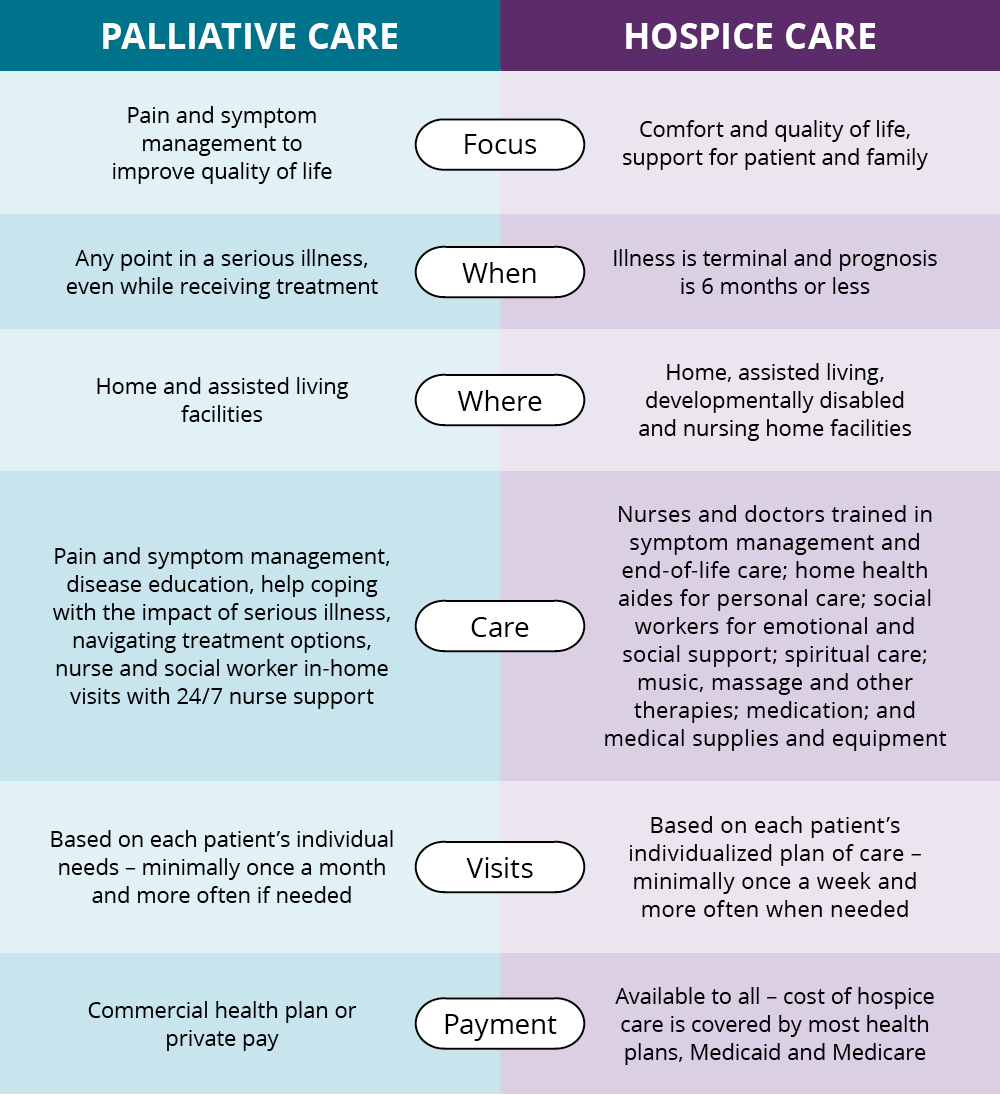what are the different levels of palliative care
Ad How do you bridge care between smaller community care centers and larger institutions. This level of care offers a team approach by hospice staff and your physician to provide comfort at the end of life.
Routine care continuous care inpatient care and respite care.

. Ramy Barsoum 23-11-2021 4 minutes 31 seconds read 0 Comment. Routine home care is the basic level of hospice care provided in your home assisted living or nursing home. The goal of palliative care is to make patients more comfortable and that generally means relieving side effects and symptoms of disease and curative treatments.
A hospice patient may experience all four or only one depending on their needs and wishes. More than likely it is routine or intermittent home care that comes to mind when. Based on the patients condition and the needed level of care used to identify and verify that the patient is receiving care at the appropriate level.
The Centers for Medicare and Medicaid Services has defined four kinds or levels of hospice care. Hospice is comfort care brought to every patient whether in a private home a nursing home assisted living community residential care facility for the elderly or hospice house. Tertiary care refers to highly specialized equipment and care.
Ad Our videos includes tips for starting palliative care conversations. Therefore nurses need a set of various competencies to provide high-quality palliative care. The care team consults with the patient to determine what type of relief is most important but there are some common symptoms that palliative teams often address.
Primary care is the main doctor that treats your health usually a general practitioner or internist. Palliative care specialists treat people living with many disease types and chronic illnesses. Level two General Palliative Care.
Medicare creates four levels of hospice care based on the patients needs. Quaternary care is an even more specialized extension of. Ad Browse Discover Thousands of Book Titles for Less.
The four levels of hospice defined by Medicare are routine home care continuous home care general inpatient care and respite care. Avoid Media Attention With Secret Celebrity Dignitary Medical Care from Your Home. What are the Four Levels of Hospice Care.
Two experts discuss coordination of care among multidisciplinary teams and institutions. The goal of palliative care is to improve quality of life. The four levels of hospice care to are available for anyone who is eligible for Medicare.
Hospice offers four levels of care as defined by Medicare to meet the diverse needs of patients and their families. Routine or Intermittent Home Care. We Come to Your Location.
To systematically synthesize the empirical evidence of 1 nursing competencies needed in palliative care and 2 whether these competencies differ across the level of palliative care. Routine care continuous care inpatient care and respite care. Palliative care is an approach that improves the quality of life of patients adults and children and their families who are facing problems associated with life-threatening illness.
Different levels of palliative care provision and education have been recognized in the literature. The four levels of hospice include routine home care continuous home care general inpatient care and respite care. Ad Looking for a Healthcare Agency That Values Privacy.
One patient may experience all four levels perhaps in just a week or ten days of hospice services. With continuous care or crisis care a hospice patient will receive nursing assistance for several. These include cancer cardiac disease such as congestive heart failure CHF chronic obstructive pulmonary disease COPD kidney failure Alzheimers Parkinsons Amyotrophic Lateral.
Find Information About a Palliative Care Option for Metastatic Lung Cancer Here. What are the three types of palliative care. Palliative Care in Armenia Fig.
The four levels of hospice include routine home care continuous home care general hospital care and temporary care. Secondary care refers to specialists. This article explains the several different types of palliative care and how they can help.
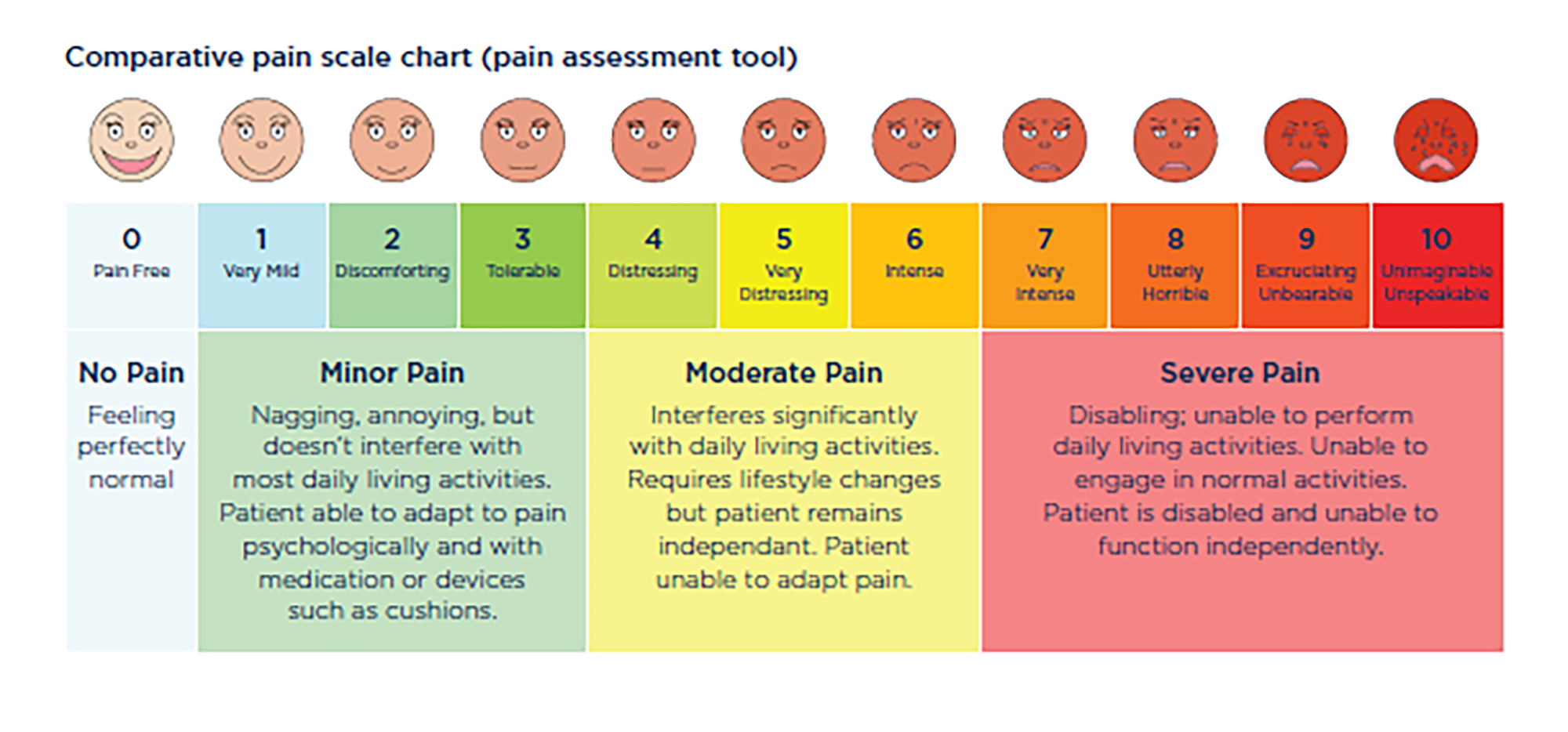
Facts About Morphine And Other Opioid Medicines In Palliative Care Palliative Care Australia

Palliative Vs Hospice Namaste Home Health Hospice
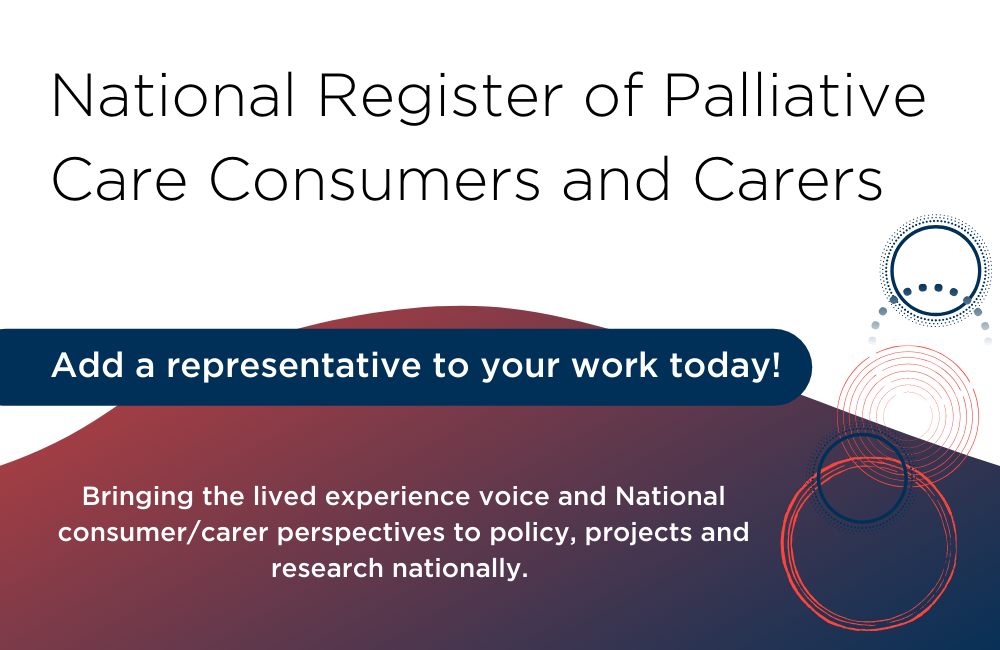
National Register Of Palliative Care Consumers And Carers Palliative Care Australia

Palliative Care What It Is Examples Benefits More

What Is Palliative Care Unicare Live In Palliative Care Elderly Care Speech Therapy Resources
Difference Between Hospice And Palliative Care Concept Care Given Eligibility
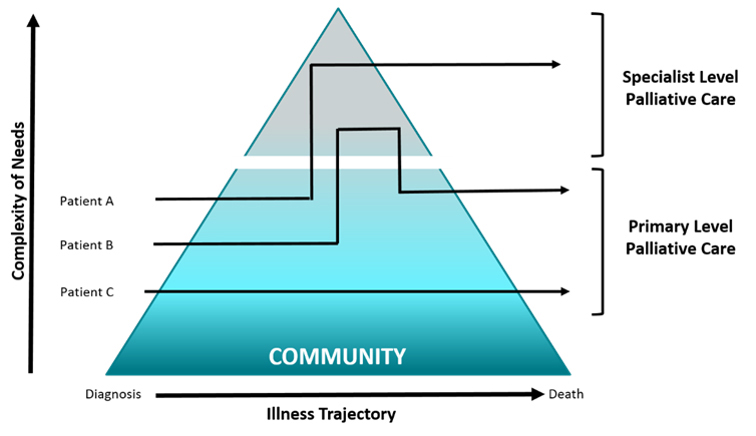
Who Provides Palliative Care And Where Ontario Palliative Care Network

Integration Of Oncology And Palliative Care A Lancet Oncology Commission The Lancet Oncology
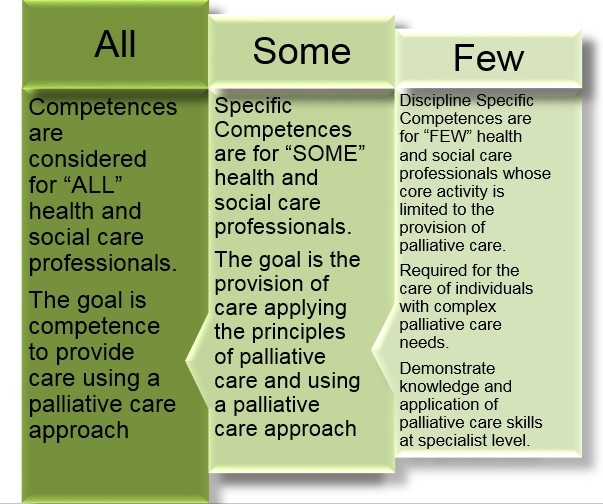
Palliative Care Competence Framework For Physiotherapists Physiopedia
Palliative Care Research On The Island Of Ireland Palliative Hub Pro
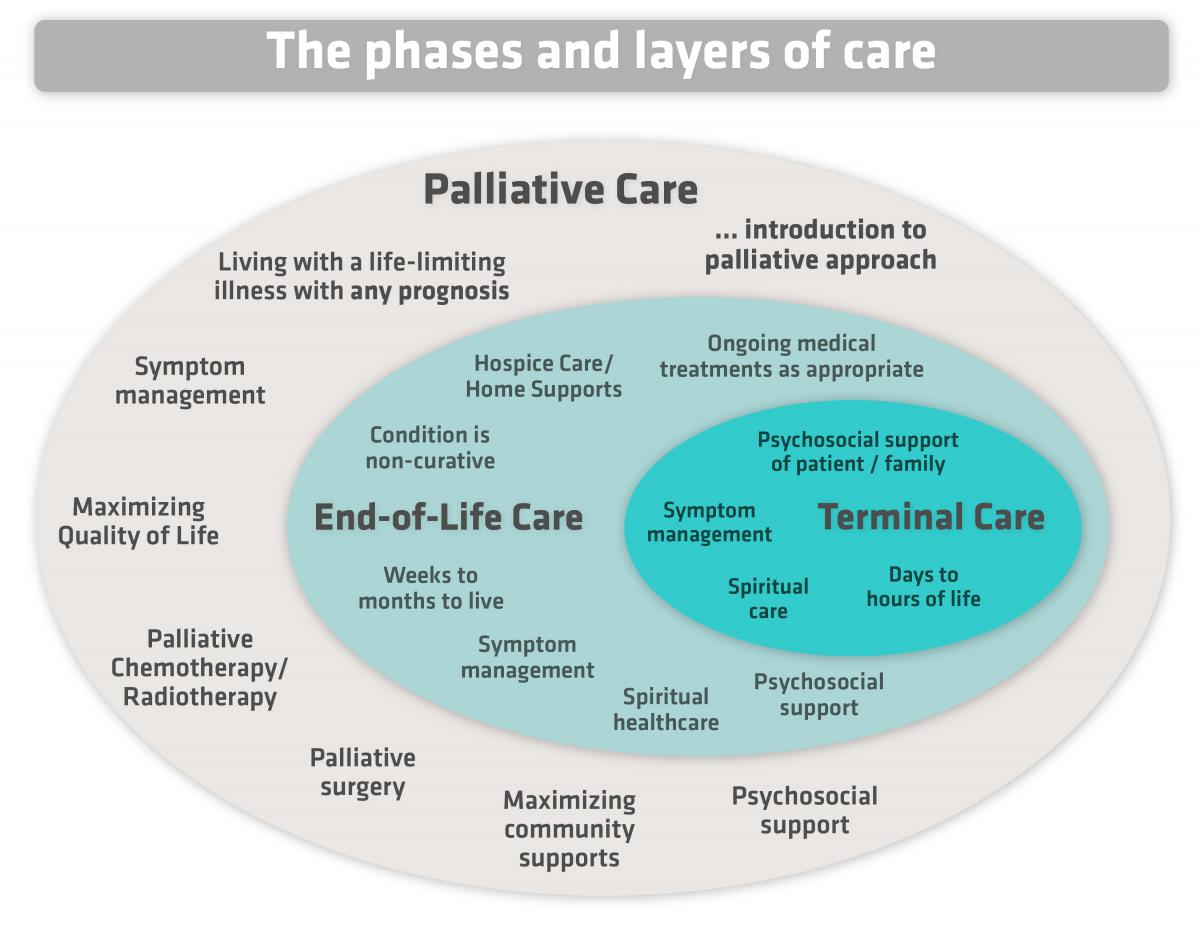
What Is Palliative Care Hospice Palliative Care

Palliative Care Toolkit Texas Pediatric Society

Demystifying Palliative Care An Integral Piece Of Healthcare That Is Missing Ehospice
Elara Caring Hospice Care In Home Hospice Elara Caring

Examples Of Short Medium And Long Term Objectives Of A Palliative Download Table

Integration Of Oncology And Palliative Care A Lancet Oncology Commission The Lancet Oncology

Examples Of Short Medium And Long Term Objectives Of A Palliative Download Table

